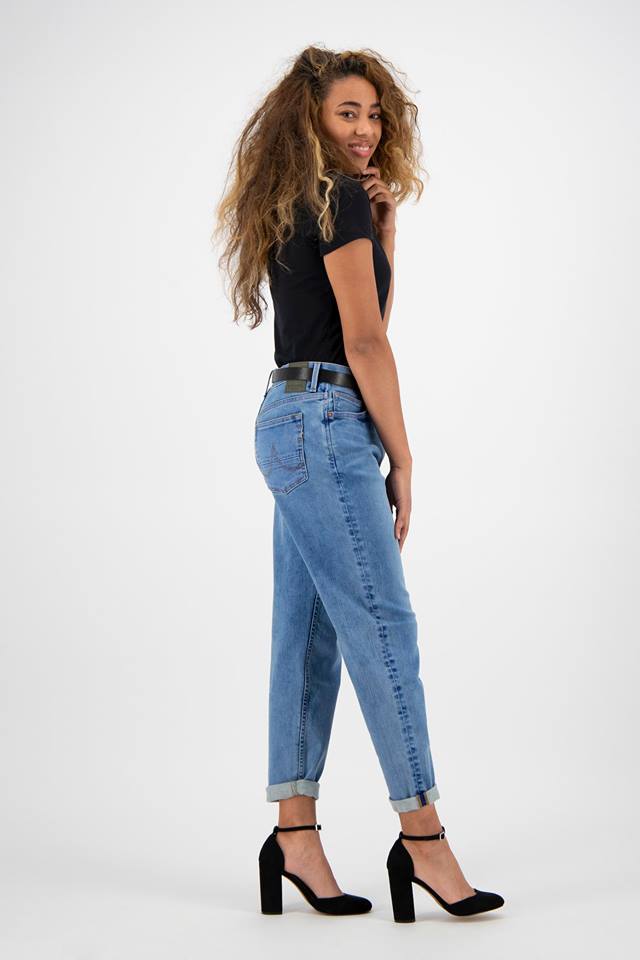Kuyichi
The history of Dutch denim brand Kuyichi goes back to 2000, when the founders took a closer look at the Peruvian cotton industry and couldn’t believe their eyes. To help end the pollution and poverty they witnessed first-hand, they wanted to invest all their energy in an environmentally friendly alternative: organic, GOTS certified cotton (the GOTS certification guaranteeing that hazardous pesticides, insecticides and artificial fertilisers are banned from the production). Given that denim pants remain the most popular cotton product, Kuyichi started producing 100% organic denim for both men and women in 2001. A little later, the brand expanded its collection to include denim shirts, denim jackets and so on, while it also began experimenting with other fabrics, such as recycled cotton, Tencel®, linen and recycled polyester.
Since 2016, the Dutch brand has been completely vegan (even the typical leather patches at the backs of their jeans have been replaced with patches of jacron, made from recycled paper). It also attaches a lot of importance to transparency. That’s why every year Kuyichi publishes a sustainability report on its website, why it lists its manufacturers and suppliers (including their certifications), and explains in detail how it tries to work in a socially and ecologically responsible way. For instance, Kuyichi compensates its CO2 emissions by supporting Gold Standard projects in developing countries.
Every now and then, Kuyichi launches seasonal items, yet the lion’s share of the garments consists of ‘Never out of Stock Denims’. The label wants its customers to take good care of their clothes, for example giving everyone who bought a pair of jeans a try-out sample of Seepje (an organic soap made from the Sapindus mukorossi fruit) in 2017. The brand’s washing instructions, in turn, can be found on a little card made of potato that is completely biodegradable. What’s more: if you plant and water the card, the seeds it contains will turn into beautiful flowers.
What the future holds for Kuyichi? Well, the brand wants to pay closer attention to recyclability in the design phase, collect and resell more used clothes, and use (even) more recycled yarn.
